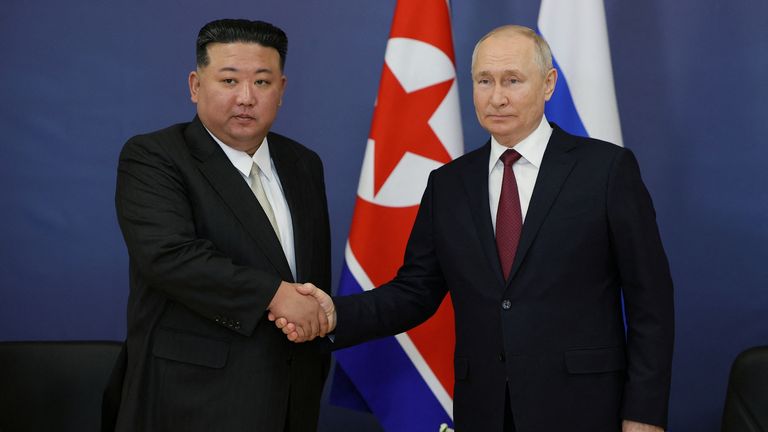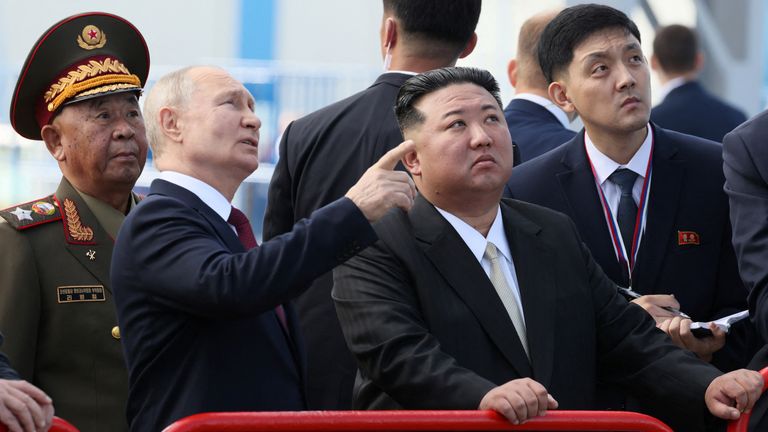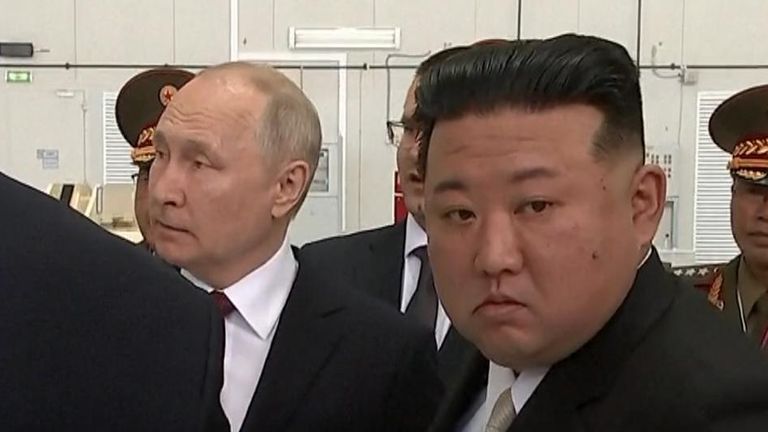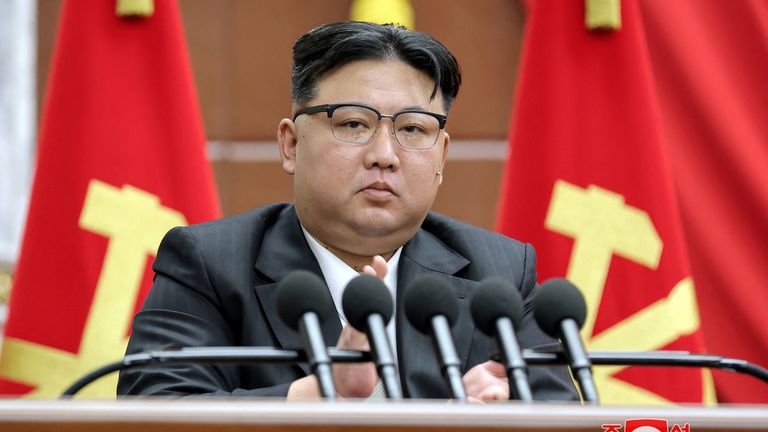Russia only nation to veto UN monitoring of sanctions of North Korea
China abstained from the vote on Thursday, while the remaining 13 council members all voted in favour of renewing the group of experts which has monitored UN sanctions against North Korea for the past 15 years.
Thursday 28 March 2024 17:40, UK
Russia was the only nation to veto the annual renewal of a panel of experts who monitor the enforcement of longstanding UN sanctions against North Korea over its nuclear weapons and ballistic missile activities.
The block comes as the US has accused Pyongyang of transferring weapons to the Kremlin, which Russia has used in the Ukraine war.
Both countries have denied the allegations but said there was a desire to strengthen military relations last year.
Vladimir Putin and Kim Jong Un met at Russia's Vostochny Cosmodrome in September, when the North Korean leader had pledged his support to Moscow to "fight against imperialism".
Mr Kim also said he was "convinced" that the "heroic Russian army" would triumph in its war with Ukraine - a conflict he referred to by the Kremlin's preferred term of "special military operation".
China abstained from the vote on Thursday, while the remaining 13 council members - including permanent seats of the UK, US and France - all voted in favour of renewing the group of experts which has monitored UN sanctions for the past 15 years.
The mandate for the current panel is to expire on 30 April 2024.
The veto comes almost a week after Moscow's Crocus City Hall was attacked, leaving more than 140 people dead.
In response to Russia's decision, Robert Wood, the deputy US ambassador to the UN, said: "Moscow has undermined the prospect of the peaceful, diplomatic resolution of one of the world's most dangerous nuclear proliferation issues."
South Korea's UN ambassador Joonkook Hwang said: "This is almost comparable to destroying a CCTV to avoid
being caught red-handed."
Meanwhile, Russia's UN ambassador, Vassily Nebenzia, told the council before the vote that Western nations were trying to "strangle" North Korea and sanctions have proven "irrelevant" and "detached from reality" in limiting its nuclear mission.
Mr Nebenzia criticised the experts' previous monitoring saying they were "playing into the hands" of the West by adopting biased strategies.
Read more on Sky News:
Briton who flew to join Russian forces insists he is 'not a terrorist'
North Korea censors Alan Titchmarsh's trousers
The veto does not alter the sanctions, which remain in force.
North Korea has been under several UN Security Council sanctions since 2006, including banning the trade of weapons and military equipment and freezing the assets of people involved in nuclear activities.
However, the totalitarian state has not denuclearised and even vowed to increase the country's stock of nuclear weapons this year.
Be the first to get Breaking News
Install the Sky News app for free


The monitors' most recent report investigated dozens of suspected cyberattacks by North Korea that raked in $3bn (£2.375bn) to help it further develop its nuclear weapons program.
Pyongyang has previously denied allegations of hacking or other cyberattacks.
The geopolitical split is evident as China and Russia have said joint military drills by the US and South Korea provoke North Korea, while the US has blamed its accusers of encouraging Pyongyang by shielding it from more sanctions.




